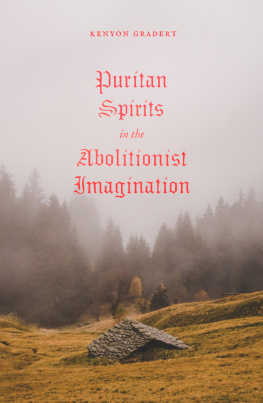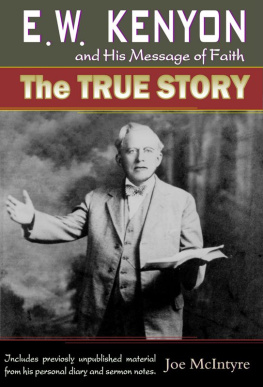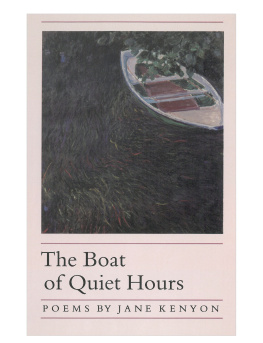CHAPTERS IN RURAL PROGRESS
THE UNIVERSITY OF CHICAGO PRESS
CHICAGO, ILLINOIS
Agents
THE BAKER & TAYLOR COMPANY
NEW YORK
THE CUNNINGHAM, CURTISS & WELCH COMPANY
LOS ANGELES
THE CAMBRIDGE UNIVERSITY PRESS
LONDON AND EDINBURGH
THE MARUZEN-KABUSHIKI-KAISHA
TOKYO, OSAKA, KYOTO, FUKUOKA, SENDAI
THE MISSION BOOK COMPANY
SHANGHAI
KARL W. HIERSEMANN
LEIPZIG
Copyright 1907 By
The University of Chicago
All Rights Reserved
Published Febraury 1908
Second Impression June 1909
Third Impression May 1911
Fourth Impression February 1913
Fifth Impression October 1916
Composed and Printed By
The University of Chicago Press
Chicago, Illinois, U.S.A.
TO MY FATHER
IRA HOWARD BUTTERFIELD
WHOSE CONSTANT CONCERN FOR RURAL WELFARE
AND LIFE-LONG SERVICE TO RURAL INTERESTS
HAVE BEEN ONE OF THE CHIEF
INCENTIVES TO THE STUDIES
LYING BEHIND THIS BOOK
PREFACE
This book does not offer a complete analysis of the rural problem; but attempts, in general, to present some of the more significant phases of that problem, and, in particular, to describe some of the agencies at work in solving it. Several of the chapters were originally magazine articles, and, though all have been revised and in some cases entirely rewritten, they have the limitations of such articles. Other chapters consist of more formal addresses. Necessarily there will be found some lack of uniformity in style and in method of presentation, and occasional duplication of argument or statement.
For permission to use articles, in whole or in part, I have to thank the editors of the Chautauquan, Arena, Forum, Review of Reviews, Popular Science Monthly, Michigan Alumnus, New England Farmer, Cornell Countryman; also Professor L. R. Taft, superintendent of Farmers' Institutes in Michigan, and the officers of the American Civic Association. Two chapters comprise material heretofore unpublished.
CHAPTER I
THE STUDY OF RURAL LIFE
The American farm problem, particularly its sociological aspect, has not as yet had the attention that it deserves from students. Much less have the questions that concern rural social advancement found the popular mind; in truth, the general city public has not been deeply interested in the farmer.
But there seem to be recent indications that the sentiment is changing. The heated discussions in New England about Mr. Hartt's interesting clinic over a decadent hill-town, the suggestive fast-day proclamation of Governor Rollins of New Hampshire a few years ago, the marvelous development of agricultural education, the renewed study of the rural school, the widespread and growing delight in country life, have all aroused an interest in and presage a new attention to rural conditions. This is well. The sociologist can hardly afford to omit the rural classes from the scope of his study, especially if he desires to investigate the practical phases of his subject. Moreover, no one with intelligent notions of affairs should be ignorant of the forces that control rural life.
In view of this apparent change in the attitude of people toward the farm problem, it may not be idle to suggest some possible errors that should be avoided when we are thinking of rural society. The student will doubtless approach his problem fortified against misconceptionshe probably has thoughtfully established his view-point. But the average person in the city is likely to call up the image of his ancestral home of a generation ago, if he were born in the country, or, if not, to draw upon his observations made on a summer vacation or on casual business trips into the interior. Or he takes his picture from Shore Acres and the Old Homestead. In any case it is not improbable that the image may be faulty and as a consequence his appreciation of present conditions wholly inadequate. Let us consider some of these possible sources of misconception.
In the first place it is not fair to compare country life as a whole with the best city conditions. This is often done. The observer usually has education, culture, leisure, the experience of travel, more or less wealth; his acquaintance is mostly with people of like attainments. When he fails to find a rural environment that corresponds in some degree to his own and that of his friends, he is quick to conclude that the country has nothing to offer him, that only the city ministers to the higher wants of man. He forgets that he is one of a thousand in the city, and does not represent average city life. He fails to compare the average country conditions with the average city conditions, manifestly the only fair basis for comparison. Or he may err still more grievously. He may set opposite each other the worst country conditions and the better city conditions. He ought in all justice to balance country slum with city slum; and certainly so if he insists on trying to find palaces, great libraries, eloquent preachers, theaters, and rapid transit in each rural community. City life goes to extremes; country life, while varied, is more even. In the country there is little of large wealth, luxury, and ease; little also of extreme poverty, reeking crime, unutterable filth, moral sewage. Farmers are essentially a middle class and no comparison is fair that does not keep this fact ever in mind.
We sometimes hear the expression, "Country life is so barrenthat to me is its most discouraging aspect." Much country life is truly barren; but much more of it is so only relatively and not essentially. We must admit that civilization is at least partially veneer; polish does wonders for the appearance of folks as well as of furniture. But while the beauty of "heart of oak" is enhanced by its "finish," its utility is not destroyed by a failure to polish it. Now, much of the so-called barrenness of country life is the oak minus the polish. We come to regard polish as essential; it is largely relative. And not only may we apply the wrong standard to the situation, but our eyes may deceive us. To the uninitiated a clod of dry earth is the most unpromising of objectsit is cousin to the stone, and the type of barrenness. But to the elect it is pregnant with the possibilities of seed-time and harvest, of a full fruitage, of abundance and content for man and beast. And there is many a farm home, plain to an extreme, devoid of the veneer, a home that to the man of the town seems lacking in all the things that season life, but a home which virtue, intelligence, thrift, and courage transform into a garden of roses and a type of heaven. I do not justify neglect of the finer material things of life, nor plead for drab and homespun as passports to the courts of excellence; but I insist that the plainness, simple living, absence of luxury, lack of polish that may be met with in the country, do not necessarily accompany a condition barren of the essentials of the higher life.














